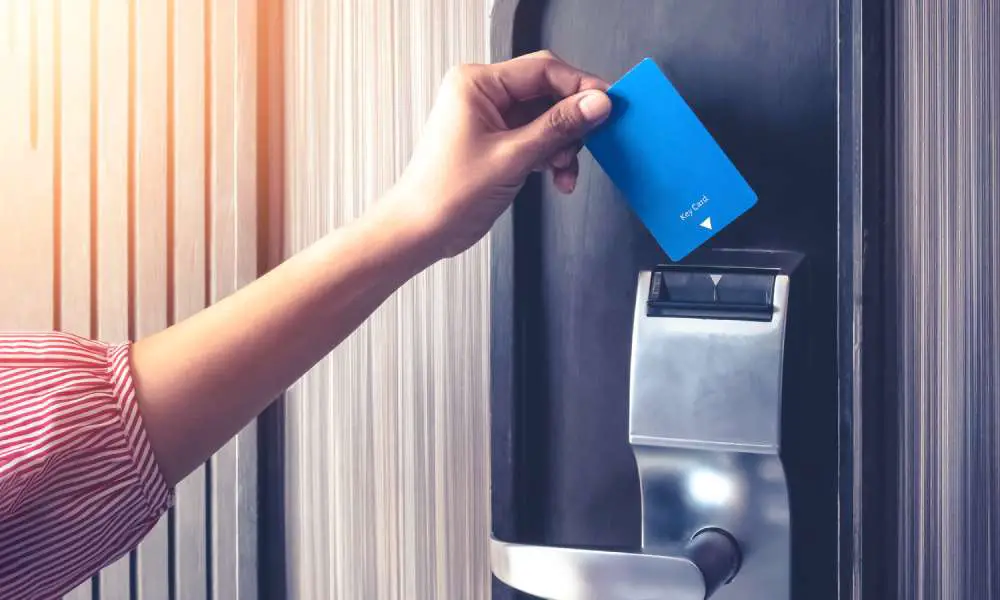

When a guest checks into your hotel, they probably receive a card key at the front desk. This credit-card-like piece of plastic contains identifying information that allows the guest access to their specific hotel room and shared amenities. But card keys aren’t the only access control system available to the hotel industry by any means, so why are they the norm? Learn some interesting information and advice below.
Hotels have a responsibility to ensure guest safety, and a variety of access control systems cater to this need. These are the most common options:
Traditional metal keys, though reliable, lack the adaptability and control of modern systems. Digital keypad locks eliminate the need for physical keys but may pose challenges in terms of simplicity. Biometric systems, including fingerprint and facial recognition, offer high security but come with greater costs and maintenance requirements. Among these options, card keys are the most balanced solution, offering both advanced functionality and user convenience. Below, we dive into why.
Card keys are the norm in the hotel industry for several reasons.
Firstly, card keys can be programmed and reprogrammed, letting hotels reuse the same card for any number of guests. The process is also very quick, streamlining check-in and check-out. Furthermore, the reprogramming feature allows hotel staff to perform emergency deactivation on card keys should they become lost or stolen.
Card keys fit perfectly in wallets, making it easy for guests to keep track of them. This reduces the chance of lost keys, likely saving your hotel on replacement costs.
A lot of rooms require a lot of keys, and a lot of keys require a lot of money. There’s no way around a large upfront investment to ensure your guests’ safety, but you can choose economical options, such as card keys. Their low production cost compared with other high-tech systems makes them a financially viable solution for hotels of all sizes.
The most common types of card keys include magnetic stripe cards, RFID (radio frequency identification) cards, NFC cards, and hole cards.
Magnetic stripe cards are cost-effective and easy to program but are prone to wear and demagnetization.
RFID cards offer greater durability and security, as they can be read without direct contact and are not affected by magnetic fields.
NFC (near field communication) cards use short-range wireless communication to interact with a hotel’s lock system. Additionally, they can integrate with mobile devices, allowing guests to use digital versions of their key cards.
Hole cards feature a series of holes punched in specific patterns that correspond to the locking mechanism of the door. While not as technologically advanced as other options, hole cards offer reliability and ease of use.
Craft a nurturing nursery with DIY projects and clever storage tips while preparing your heart…
Discover how paid surveys work, if they're legitimate, tips for success, and realistic earnings expectations.…
Making your business ADA-compliant is much simpler than you realize and it’s also nonnegotiable, including…
Maintain your diesel turbocharger with our expert tips to ensure durability, efficiency, and peak performance…
If you’re a dedicated foodie, these fun facts you never knew about onions will definitely…
Are you tired of letting your receipts pile up without any benefit? What if those…